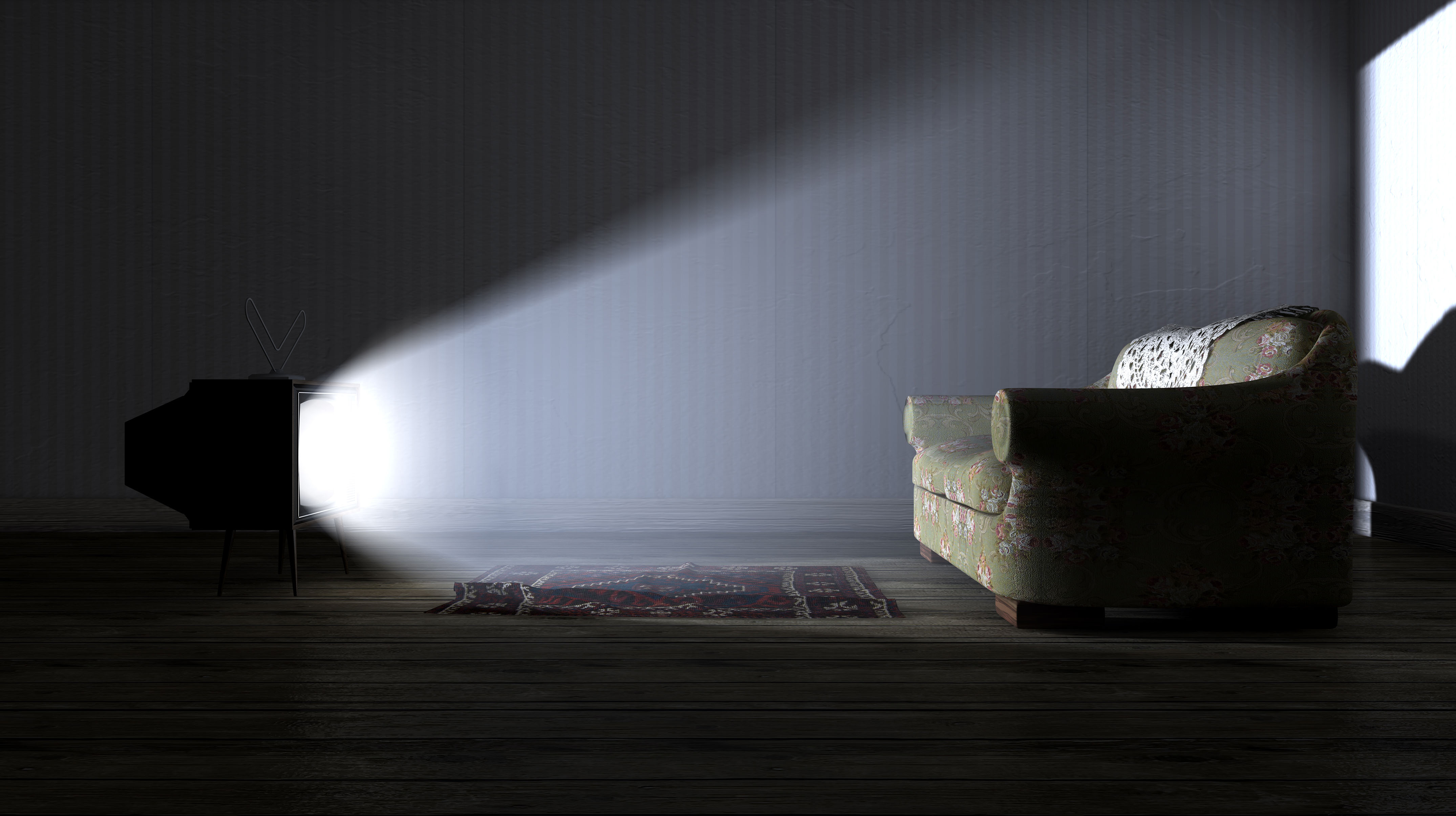Anxious about the world? Watch a dark TV show.
On House of Cards, Shakespeare, and the release of catharsis


A free daily email with the biggest news stories of the day – and the best features from TheWeek.com
You are now subscribed
Your newsletter sign-up was successful
Shortly after becoming hooked on the hit Netflix series House of Cards, I turned to my husband one evening and gasped, "He's so bad!"
Who knows what fictional politician Frank Underwood had just done? Sabotaged a colleague? Pushed a former lover in front of a subway train? Seduced his hapless Secret Service bodyguard? It could have been any or all of the above; House of Cards' anti-hero (and his equally despicable wife) are just bad people. So bad. I chant this mantra out loud at least twice during each and every episode I've watched since then, and I think it to myself often as I eagerly anticipate the series' upcoming fifth season: They're so bad. SO BAD.
Cards isn't the only series I follow. Game of Thrones also has me in its gruesome, draconic thrall. I'm totally into The Walking Dead, too. And apparently I'm not the only American who appreciates shows chock full of evil and gore. The aforementioned have all just been nominated for multiple Emmy Awards, with Thrones garnering the most nods of any program, including one for Best Drama.
The Week
Escape your echo chamber. Get the facts behind the news, plus analysis from multiple perspectives.

Sign up for The Week's Free Newsletters
From our morning news briefing to a weekly Good News Newsletter, get the best of The Week delivered directly to your inbox.
From our morning news briefing to a weekly Good News Newsletter, get the best of The Week delivered directly to your inbox.
Apparently it's good to be bad these days. Programs that skew grim also consistently dominate ratings. Orange is the New Black? Women in prison, check. Marco Polo? "Greed, betrayal, sexual intrigue, and rivalry," check. Mr. Robot? Mentally ill, drug-addicted antihero … check, check, and double-check.
The fascination with theatrical badness seems counterintuitive, given how much horror the real world has to offer at present. Why do we want to watch Vikings raping and pillaging when ISIS is actually doing plenty of that in real time? Who needs Pretty Little Liars when we have Kardashians? We keep Calling Saul, when our own elected officials and nominees to public office regularly demonstrate far more self-interested ambition and moral ambiguity than any fictional character could ever play on TV.
For answers to these questions and more, we just might turn to the 17th century. Like ours, these were turbulent times. The intellectual and artistic Renaissance that resulted in new technologies and unprecedented global interaction also inspired social unrest and cultural upheaval. Exploration and trade that filled the coffers of wealthy aristocrats and fueled economic expansion also saw periods of depression and oppression of the working class.
Sound familiar? There's more.
A free daily email with the biggest news stories of the day – and the best features from TheWeek.com
Following a series of failed Western incursions, the 1600s saw Islamist forces in the Middle East firmly reassert themselves: the rise of the Ottoman Empire. Meanwhile, back in Europe, influencers duplicitously schemed behind closed doors while sitting rulers openly squabbled for greater influence. Thrones were disputed... often with horrific and bloody results.
There were catastrophic outbreaks of disease. There was even, in the 1590s, a period of climate change that caused more than failed crops; it fueled famine, war, and crisis.
Enter William Shakespeare. This 16th-and-early-17th-century English poet and playwright was not only a brilliant author, he was also a keen cultural observer and critic. He also knew how to manipulate the emotions of his audience in such a way as to alleviate their anxieties about the world. People left the Globe Theater feeling good… even if the play they had attended was not one of Shakespeare's rollicking comedies but one of his darker tragedies. Macbeth, populated with scary witches, vengeful ghosts, and very evil human beings — audiences loved The Scottish Play. Hamlet was a hit, not despite but because of its disturbing themes of mental illness, betrayal, and death. Ditto King Lear. The Tempest, another tale of sorcery, usurpation, and violence, is thought to be Shakespeare's last play, and is considered by many to be a thinly veiled expose of postcolonial angst.
We would expect Elizabethan audiences, living in a world of uncertainty and violence, to be repelled by rather than attracted to entertainment that played upon their greatest fears and anxieties. But this is the genius of Shakespeare, and it is echoed by the brilliance of today's writers of dark and disturbing TV: People like to be unnerved. Audiences like nothing better than a good scare… provided that scare is in the safe, unthreatening confines of a theater. Or a screen.
Shakespeare — and today's creators of TV series — understood and acted upon fourth century philosopher, scientist, logician, and poet Aristotle's concept of catharsis: There is an " …emotional release and cleansing that spectators experience during and after watching a tragedy, which has a corrective and healing effect."
Observing and sharing the effect of catharsis among audience members, Aristotle said, diffuses and moderates otherwise overwhelming emotions, such as terror, guilt, hatred, and fear, Aristotle said. This "emotional discharge" experienced while watching a tragedy helped "to restore harmony and produce a wise and reasonable man."
So when the world around you presents very real dangers (terrorism, Zika, Donald Trump), deliberately exposing yourself to television programs (and movies and even books) that stimulate the emotions these things arouse — fear, isolation, anger — is kind of like psychological homeopathy. The stimulus may not be pleasant in the moment, but you know it's not going to hurt you. You can get up and walk away anytime you want. This knowledge gives rise to feelings of control and security, which are things we all crave right now.
So go ahead and binge-watch the entire first season of Preacher tonight. Root for Homeland's bipolar CIA operative Carrie Mathison as she struggles to balance national security with her own sanity.
You might just feel better in the morning.
My own minimal knowledge of Shakespeare and his times has been greatly expanded over the years by Pulitzer Prize-winning author and scholar Stephen Greenblatt, Ph.D.; the concept of Shakespearean salutary anxiety outlined here is his, and I can't apply it to currently popular entertainment without a shout-out. Any Harvard professor who pens a tome called Learning to Curse deserves that and more.
Leslie Turnbull is a Harvard-educated anthropologist with over 20 years' experience as a development officer and consultant. She cares for three children, two dogs, and one husband. When not sticking her nose into other peoples' business, she enjoys surfing, cooking, and writing (often bad) poetry.
-
 The ‘ravenous’ demand for Cornish minerals
The ‘ravenous’ demand for Cornish mineralsUnder the Radar Growing need for critical minerals to power tech has intensified ‘appetite’ for lithium, which could be a ‘huge boon’ for local economy
-
 Why are election experts taking Trump’s midterm threats seriously?
Why are election experts taking Trump’s midterm threats seriously?IN THE SPOTLIGHT As the president muses about polling place deployments and a centralized electoral system aimed at one-party control, lawmakers are taking this administration at its word
-
 ‘Restaurateurs have become millionaires’
‘Restaurateurs have become millionaires’Instant Opinion Opinion, comment and editorials of the day
-
 Walter Isaacson's 'Elon Musk' can 'scarcely contain its subject'
Walter Isaacson's 'Elon Musk' can 'scarcely contain its subject'The latest biography on the elusive tech mogul is causing a stir among critics
-
 Welcome to the new TheWeek.com!
Welcome to the new TheWeek.com!The Explainer Please allow us to reintroduce ourselves
-
 The Oscars finale was a heartless disaster
The Oscars finale was a heartless disasterThe Explainer A calculated attempt at emotional manipulation goes very wrong
-
 Most awkward awards show ever?
Most awkward awards show ever?The Explainer The best, worst, and most shocking moments from a chaotic Golden Globes
-
 The possible silver lining to the Warner Bros. deal
The possible silver lining to the Warner Bros. dealThe Explainer Could what's terrible for theaters be good for creators?
-
 Jeffrey Wright is the new 'narrator voice'
Jeffrey Wright is the new 'narrator voice'The Explainer Move over, Sam Elliott and Morgan Freeman
-
 This week's literary events are the biggest award shows of 2020
This week's literary events are the biggest award shows of 2020feature So long, Oscar. Hello, Booker.
-
 What She Dies Tomorrow can teach us about our unshakable obsession with mortality
What She Dies Tomorrow can teach us about our unshakable obsession with mortalityThe Explainer This film isn't about the pandemic. But it can help viewers confront their fears about death.
